Student-Athlete Code of Conduct
Jump to sections below
Student-Athlete Code of Conduct
Guiding Principle
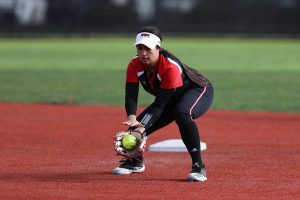
It is an honor and a rare accomplishment to have become a college athlete. We welcome you to our group. The Athletics department at Western Oregon University aspires to provide each of its students with an experience that will be enjoyed, cherished and remembered. We hope to sustain a culture of excellence on our campus. We strive to excel in all areas of college life: competition, academics, behavior, citizenship and social responsibility. We strive to be known and recognized on campus. We hope that other clubs, organizations and departments on our campus look at WOU athletes with a sense of pride. While our demands are high and our expectations unique among WOU students, the benefits of creating and maintaining this enviable culture are far-reaching.
Why it is important & team responsibility
Everything included here, and on this entire site, is not optional. This manual also contains Great Northwest Athletic Conference (GNAC) and NCAA rules that govern college athletics. In addition to these over-riding guidelines, you are also subject to your team’s rules and regulations. These will be articulated to you by your head coach. Understand that violation of our rules will result in consequences to be determined by your head coach, the director of Athletics and/or the dean of students. Violation of our rules may result in sanctions that may include a written reprimand, loss of practice time or participation, suspension from your team, reduction or loss of financial aid or dismissal.
Our Governing Bodies
All student-athletes are governed by NCAA rules and legislation. In addition, our conference, the GNAC, has a separate set of rules. Not knowing these rules is not an acceptable excuse for violations. You will be afforded with educational opportunities to learn about these rules. You will also have access to our Athletics Compliance Officer who can guide you through these requirements.
Sportsmanship Policy
Each student-athlete is a representative of their team, Athletics and the university. Each student should demonstrate good sportsmanship at all athletic events, whether competing or observing. Poor sportsmanship is not what WOU is about. The following is a list of behaviors that will not be tolerated:
- Physical or verbal abuse of players, spectators, officials, coaches or administrators.
- Throwing objects onto the playing surface or at any participant (players, coaches, officials or spectators, etc.)
- Taunting opponents, officials or coaches, etc.
- The use of profane or vulgar language or gestures or trash talking.
- Fighting
Violation of this sportsmanship policy can result in sanctions imposed by the director of Athletics, which may include suspension or dismissal from your team. We pride ourselves in the way we play and, in the way, we support our fellow athletes.
Sports wagering includes:

- Placing, accepting or soliciting a wager (on a student-athlete’s behalf or behalf of others) on any intercollegiate, amateur or professional team or contest
- Internet sports wagering
- Fantasy leagues in which entry fees are required or there is an opportunity to win a prize
- Auctions in which bids are placed on teams, individuals or contests
- Bookmaker or parlay card
There are various sanctions in place for individuals who participate in sports wagering. Student-athletes involved will permanently lose all remaining regular-season and postseason eligibility inall sports.
NCAA Ethical Conduct (NCAA article 10)
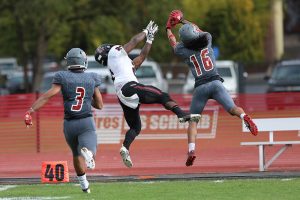 Honesty and sportsmanship
Honesty and sportsmanship
All participating student-athletes shall always act with honesty and sportsmanship so that intercollegiate athletics as a whole, their institutions and they, as individuals, shall represent the honor and dignity of fair play and the generally recognized high standards associated with wholesome competitive sports.
Unethical conduct
Unethical conduct by a prospective or enrolled student-athlete or a current or former university staff member (e.g., coach, professor, tutor, teaching assistant, student manager, athletic trainer) may include, but is not limited to, the following:
- Refusal to furnish information relevant to an investigation of a possible violation of an NCAA regulation when requested to do so by the NCAA or the individual’s institution;
- Knowing involvement in arranging for fraudulent academic credit of false transcripts for a prospective or an enrolled student-athlete; or knowing involvement in offering or providing a prospective or an enrolled student-athlete an improper inducement or extra benefit or improper financial aid;
- Knowingly furnishing or knowingly influencing others to furnish the NCAA or the individual’s university false or misleading information concerning the individual’s involvement in or knowledge of matters relevant to a possible violation of an NCAA regulation;
- Receipt of benefits by a university staff member for facilitating or arranging a meeting between a student-athlete and an agent, financial advisor or representative of an agent or adviser;
- Knowingly providing a student-athlete with a banned substance, impermissible supplement, or medications contrary to medical licensure, commonly accepted standards of care in sports medicine practice, or state of federal law. This provision shall not apply to banned substances for which the student-athlete has received a medical exception; however, the substance must be provided in accordance with medical licensure, commonly accepted standards of care and state or federal law;
- Failure to provide complete and accurate information to the NCAA, the NCAA Eligibility Center or university admissions regarding an individual’s academic record (e.g., schools attended, completion of coursework, grades, test scores);
- Fraudulence or misconduct in connection with entrance or placement examinations;
- Engaging in any athletics competition under an assumed name or with intent otherwise to deceive; or
- Failure to provide complete and accurate information to the NCAA, the NCAA Eligibility Center or the university’s athletics department regarding an individual’s amateur status.
Disciplinary action
Prospective or enrolled student-athletes found in violation of the provisions of the NCAA ethical conduct regulation shall be ineligible for further intercollegiate competition, subject to appeal to the Committee on Student-Athlete Reinstatement for restoration of eligibility.
Social Media Policy
 Student-athletes may maintain personal profiles on social networking sites (Instagram, Twitter, Snapchat, etc.). Student-athletes must be aware that some online behavior may embarrass themselves, their teammates, their sports programs and/or Western Oregon University and may result in disciplinary action.
Student-athletes may maintain personal profiles on social networking sites (Instagram, Twitter, Snapchat, etc.). Student-athletes must be aware that some online behavior may embarrass themselves, their teammates, their sports programs and/or Western Oregon University and may result in disciplinary action.
Each student-athlete must acknowledge that the content of such website profiles are available to many unanticipated viewers and that content can reflect positively or negatively on themselves, their teammates and the sport group with which they are affiliated. Therefore, student-athletes who identify themselves with an intercollegiate team or are depicted wearing identifying apparel in photos and maintain such websites are required to maintain them in accordance with the following policies:
- The use of offensive or vulgar language in any context is not permitted.
- Offensive, lewd, revealing photographs are prohibited.
- Photographs revealing violent, demeaning or sexual activities are not permitted.
- Photos depicting conduct that is in violation of the WOU Code of Student Responsibility, state law or federal law are prohibited.
WOU and Athletics wants you to keep in mind the following while using social media:
- Many law enforcement agencies, potential employers, graduate programs and scholarship committees screen social networking sites, so exercise caution on these sites.
- Students-athletes could face discipline, including dismissal from their teams, if their content or behavior depicted on social media violates WOU’s Code of Student Responsibility or the policies of WOU, Athletics, GNAC or the NCAA.
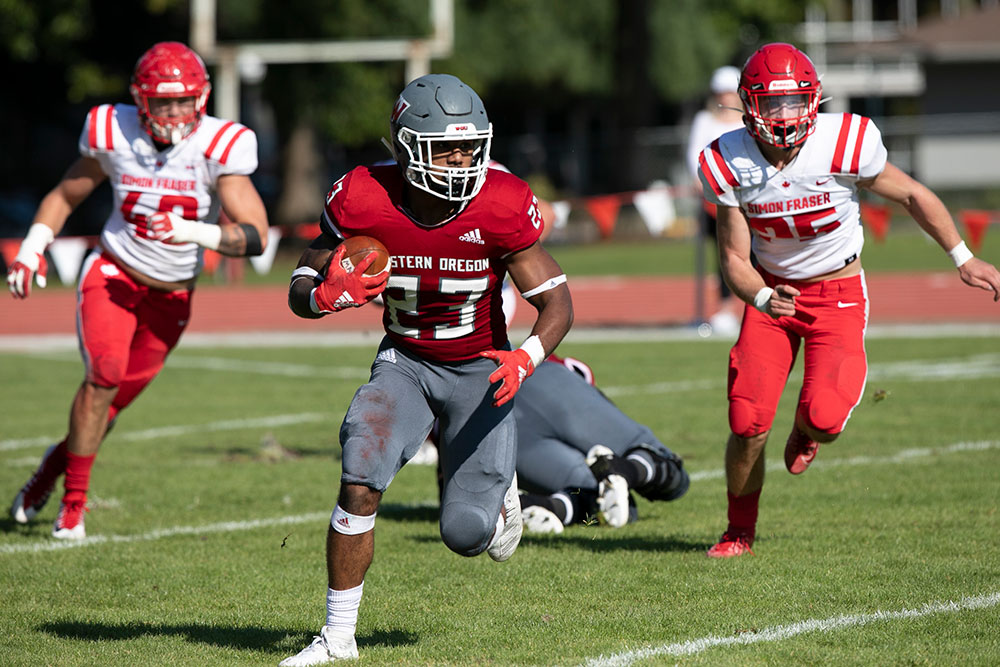
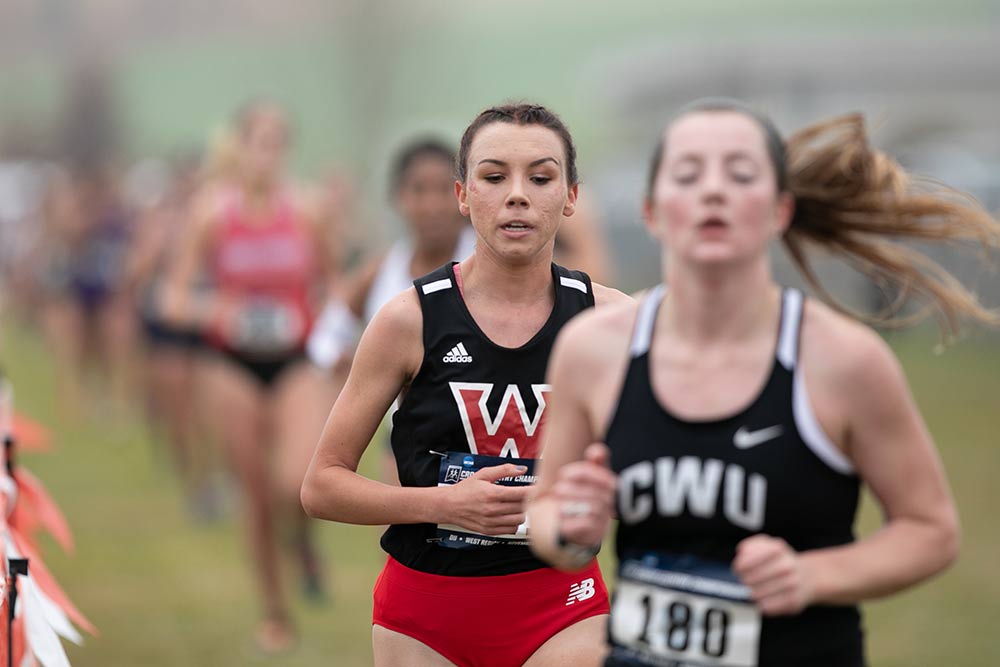
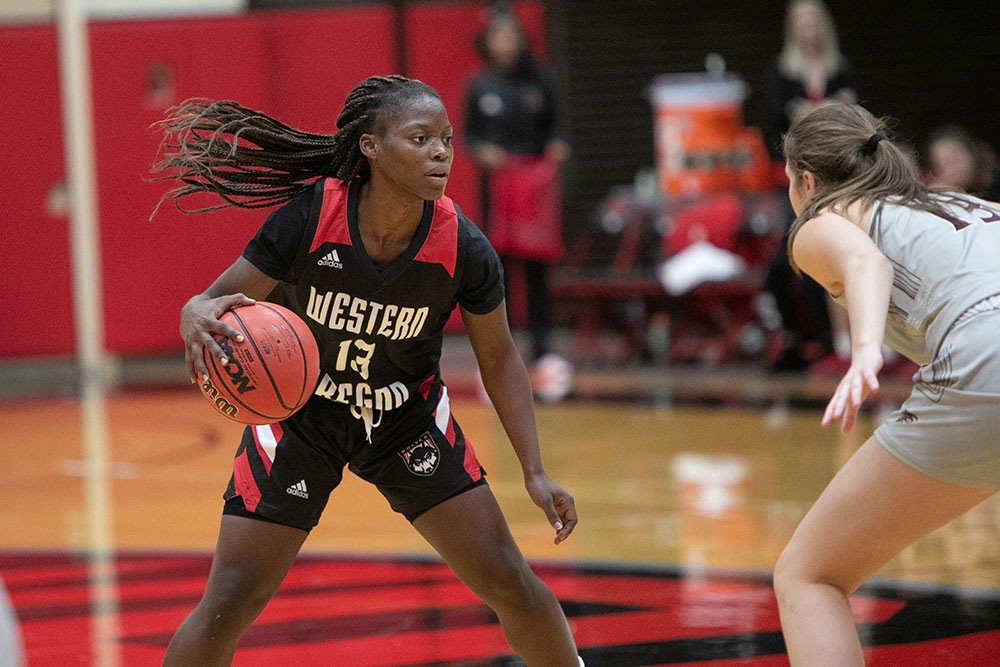
WOU Code of Student Responsibility
All members of the Western Oregon University community have a responsibility to maintain a level of behavior that reflects favorably upon the individual and WOU. WOU expects students to abide by local, state and federal laws as well as WOU policies, procedures and regulations, including this code. The regulations contained in the code will apply to all matters affecting WOU including, but not limited to, events occurring during the time the university is in session, events occurring between academic terms, at university sponsored on- and off-campus events, and any behavior on or off the campus by WOU students.
Code of Student Responsibility Violations
Academic misconduct: The act of cheating, fabrication and plagiarism.
Examples: looking at another person’s exam, making up lab results and failing to cite sources in a paper.
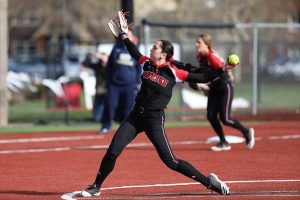
Alcohol: Those under 21 may not possess, consume or furnish alcohol. Possession of alcohol includes possession by consumption. Those older than 21 may not consume alcohol on university property except for when authorized by the university. Those older than 21 may not furnish alcohol to minors.
Computer/network resources misuse: Any violation of the Acceptable Use of Computing Resources Policy, which includes violation of copyright law.
Controlled substances: Possession, consumption, manufacturing, distribution or sale of illegal drugs or controlled substances. (Including marijuana, which is still illegal under federal law.)
Disorderly conduct: Unreasonable noise or conduct that results in annoyance, exposing oneself to others or trying to see and/or record others in private acts.
Failure to comply: Failure to comply with the reasonable request of a university official.
Fire and life safety: Tampering with fire safety equipment, generating a false alarm or engaging in behavior that constitutes a fire or safety hazard.
Harassment, discrimination, bullying or stalking: Insults, gestures, or abusive words directed to another person that may cause emotional distress.
Hazing: Initiation rites involving any intentional action that a reasonable person would foresee as causing mental or physical discomfort or embarrassment.
Inciting or provoking others: Encouraging others to engage in prohibited conduct or insulting a person in that person’s presence with abusive words or gestures.
Interference or contempt of adjudicative proceedings: Intentionally furnishing false information to a university official or hearing body or behaving in a way that interrupts the hearing procedures.
Misrepresentation of matter of fact: Knowingly furnishing false information to an authorized university official; representing oneself as another person; altering, forging or improperly possessing another’s university identification card; or providing false testimony about previous academic information.
Obstruction, disruption or interference: Engaging in behavior that disrupts university functions (e.g., interrupting teaching, research, or campus activities or functions). Example: going to class while under the influence of drugs or alcohol.
Publications and media: Posting or distributing materials on university property that violates copyright laws, postal regulations or university policies or rules.
Sexual misconduct: Any contact of a sexual nature without explicit consent for each form of sexual activity. Example: touching the genitalia of a person who is intoxicated and unable to give clear permission.
Threatening or abusive behavior: Conduct that threatens imminent bodily harm or endangers the physical or emotional health of any person or oneself.
Vandalism/theft/unauthorized use of property: Damage, destruction, theft or unauthorized entry or use of university property. Examples: taking chairs from WUC or being in the Courtney Health & Wellness Center when it is closed.
Violation of policies, standards and laws: Any violations of federal, state or local law that results in law enforcement report being forwarded to the university.
Dangerous weapons and destructive chemical or incendiary devices: Possession, use, or threatened use of a weapon, ammunition or any object or substance used as a weapon.
Student-Athletes should make themselves familiar with the full text of the Western Oregon University’s Code of Student Responsibility, including procedures for the student conduct system. Learn more about the student conduct staff here.
Hazing and Initiation Policy
Our athletics department has a zero-tolerance policy against hazing and initiations. We define hazing as:
- Any activity or action that creates a risk to the health and safety of another person.
- Any activity designed to humiliate, degrade or abuse individuals who are joining or continuing with a team. Hazing or initiations are simply not allowed (regardless of an individual’s willingness to participate).
Examples of prohibited behavior include, but are not limited to:
- Forced or pressured consumption of alcohol or drugs, ingestion of any substance (food, water, etc.), shaving, haircut, painting, piercing etc. any part of one’s body, compelled physical exercise or paddling, whipping, beating or physical abuse of any kind.
- Any type of mental, emotional or physical abuse.
- Compulsory servitude.
- Verbal or cruel harassment including yelling, screaming etc.
- Any activity that interferes with one’s ability to study or complete assignments.
- Forcing or compelling the wearing of apparel designed to embarrass those who are wearing it.
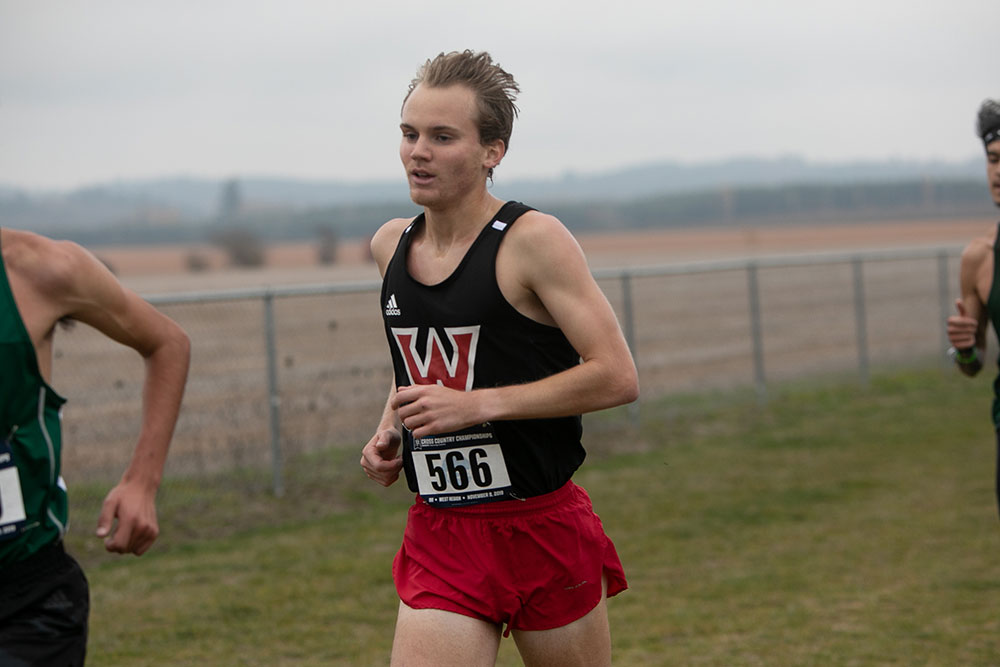
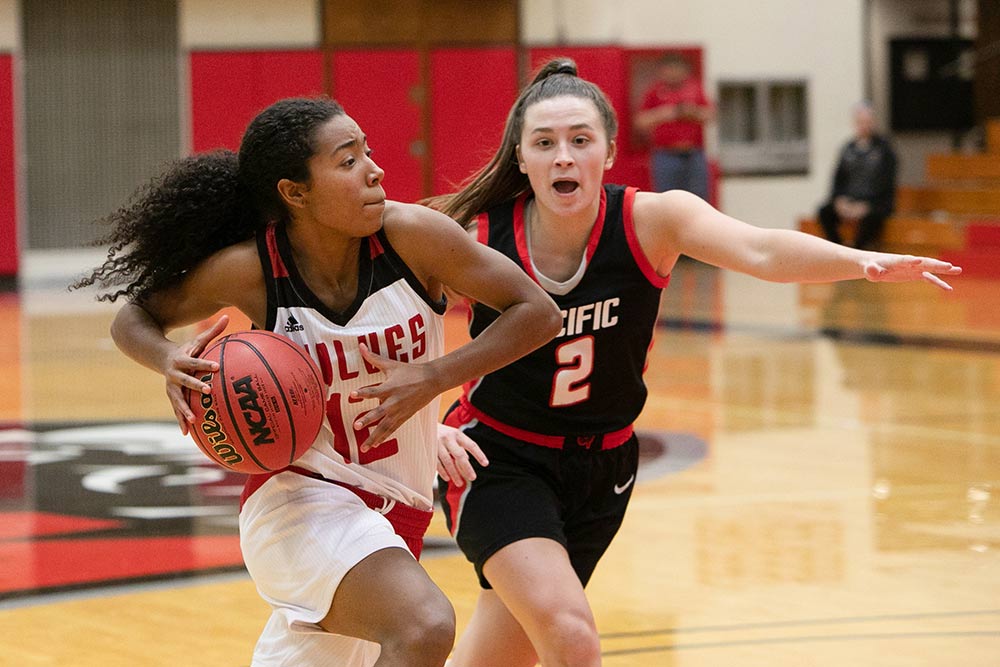
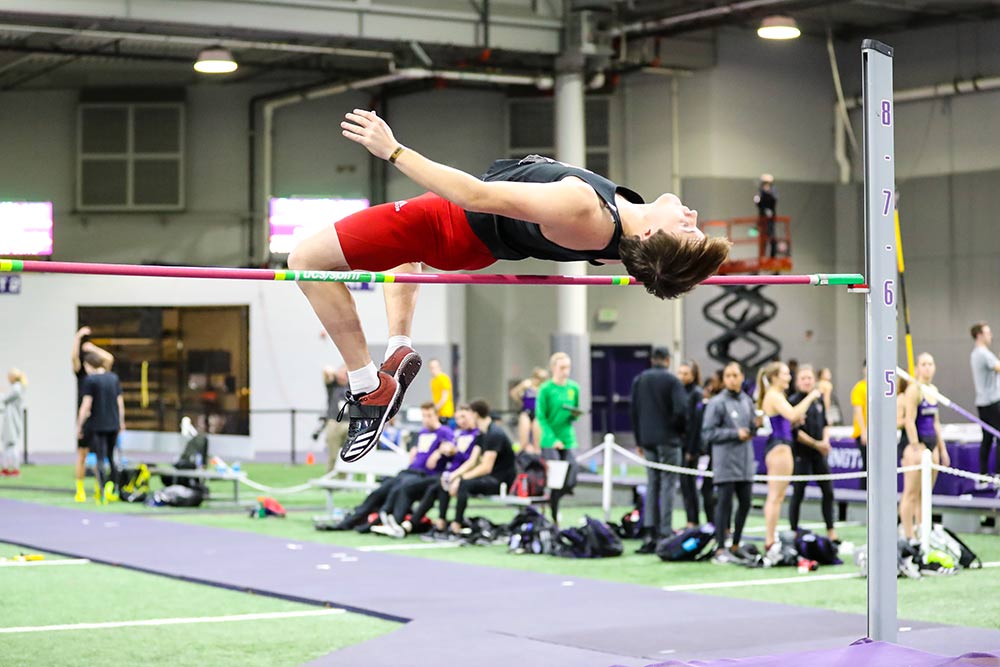
Academic misconduct
Western Oregon University Athletics maintains a zero-tolerance policy regarding academic misconduct. All issues regarding academic misconduct are processed by the office of the dean of students. Acts of academic misconduct includes but are not limited to:
Acts of academic misconduct, which include but are not limited to:
(a) Cheating – intentional use, or attempted use of artifice, deception, fraud, or misrepresentation in completing, submitting, or recording one’s academic work;
(b) Fabrication – unauthorized falsification or invention of any information or citation in any academic exercise;
(c) Facilitating dishonesty – helping or attempting to help another person commit an act of academic misconduct. This includes students who substitute for other persons in examinations, fake other person’s attendance, or allow another person to copy work or represent as the student’s own papers, reports, or any other academic work or the work of others;
(d) Plagiarism – representing without giving credit the words, data, or ideas of another person as one’s own work in any academic exercise. This includes submitting, in whole or in part, pre-written term papers of another or the research of another, including but not limited to the product of commercial vendors who sell or distribute such materials, and the appropriation or use of electronic data of another person or persons as one’s own, or using such data without giving proper credit for it;
(e) Any use or attempted use of electronic devices in gaining an illegal advantage in academic work in which the use of these devices is prohibited. Such devices include but are not limited to cell phones, smart phones, personal digital assistants, electronic tablets, laptops, programmable calculators, USB flash drives or other removable memory devices, etc.
 Buckley Amendment/FERPA
Buckley Amendment/FERPA
The Family Educational Rights and Privacy Act (also called “FERPA” or “Buckley Amendment”) gives students privacy rights in their education records. The law requires that Western Oregon University keep educational records private. The university must obtain a student’s permission before any other party (e.g., parents or guardians) may have access to the student’s file. There are exceptions for emergencies, court orders and for university officials who have a “need to know.” The law also provides that students have the right to inspect records about themselves that are maintained by the university.
Student-Athlete Advisory Committee (SAAC)
The WOU Student-Athlete Advisory Committee is made up of student-athletes from each of our intercollegiate teams. Functions of SAAC include:

- Give student-athletes a voice within their athletic department, campus and the community
- Provide feedback and insight into Athletics issues
- Promote a positive image on campus of student-athletes and help student-athletes become involved and represented in campus-wide committees
- Organize community-service efforts
- Coordinate the annual Make-A-Wish project
Interested in representing your team, tell your coach.
Keep connected by following SAAC on Instagram (USERNAME) and Twitter @WOUSAAC.
 Community engagement
Community engagement
The objective of participation in community engagement is to foster interest in and increase the visibility of WOU Athletics. Through community engagement, student-athletes can direct the energy and spirit of competition to positively change society. Community engagement differs from community service in that engagement emphasizes the gathering of individuals to share in an experience and not just aid an individual or group in need. All community engagement and service opportunities must be approved by compliance officer prior to the activity.

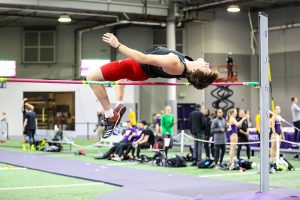 Buckley Amendment/FERPA
Buckley Amendment/FERPA